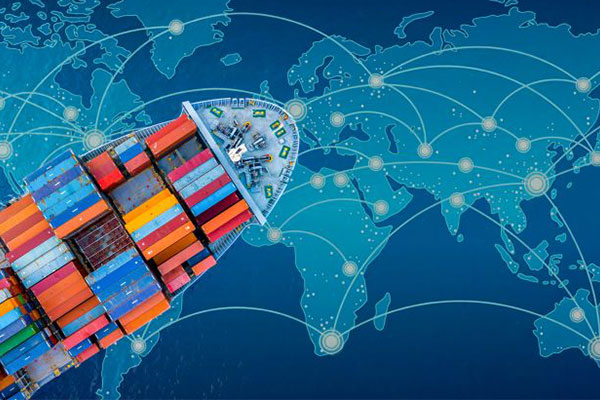At an important meeting held in Abu Dhabi, World Trade Organization (WTO) Director-General Agosi Oconjo-Ivira issued a warning about the prospects for global commodity trade. According to Reuters, Oconjo-Ivira said on February 26 that the global commodity trade growth rate could not reach the expected target of 3.3% by 2024.
This is significantly lower than the forecast in October last year, when global commodity trade was forecast to grow by 0.8% in 2023.Oconcho-Ivira noted: “Given all current downward risks, we expect that this year’s commodity trade growth rate may not meet the expected target.”
The four-day meeting also discussed a number of trade issues, including the WTOs two new members: the Comoros and East Timor.In addition, approximately 120 countries are expected to reach an agreement on removing investment barriers that hinder development, which is seen as a positive progress.
However, the meeting also exposed some more difficult topics, discussions about extending the 25-year suspension period for imposing tariffs on digital trade. South Africa and India have expressed opposition to the proposal, indicating that it may be difficult for parties to reach consensus in this area.
The meeting’s chairman, UAE Foreign Trade Minister Sani Zeidi, stressed the importance of trade and sustainability issues, and raised concerns about the importance of the WTO’s future: “The next generation will not have the same trade ecosystem we have now, and we don’t want this organization to be outdated when the next generation is in charge of the trade archive.”
John Denton, Secretary-General of the International Chamber of Commerce, also expressed his views on the future of the WTO, noting that even less significant achievements, such as a forward-looking ministerial statement showing the common goals of governments, are worthy of pursuit.
The WTO meeting and the statement of the Director-General reminds the global trade community once again of the uncertainty and challenges in the current international economic environment. With the world facing multiple pressures such as supply chain interruptions, geopolitical tensions and economic slowdown, the International Trade Organization and its member states need to work together to ensure the stability and sustainability of the trade system. The future global trade pattern and how the role of the WTO will evolve are still questions worthy of close attention in the global economy.



 Follow customer service WeChat
Follow customer service WeChat